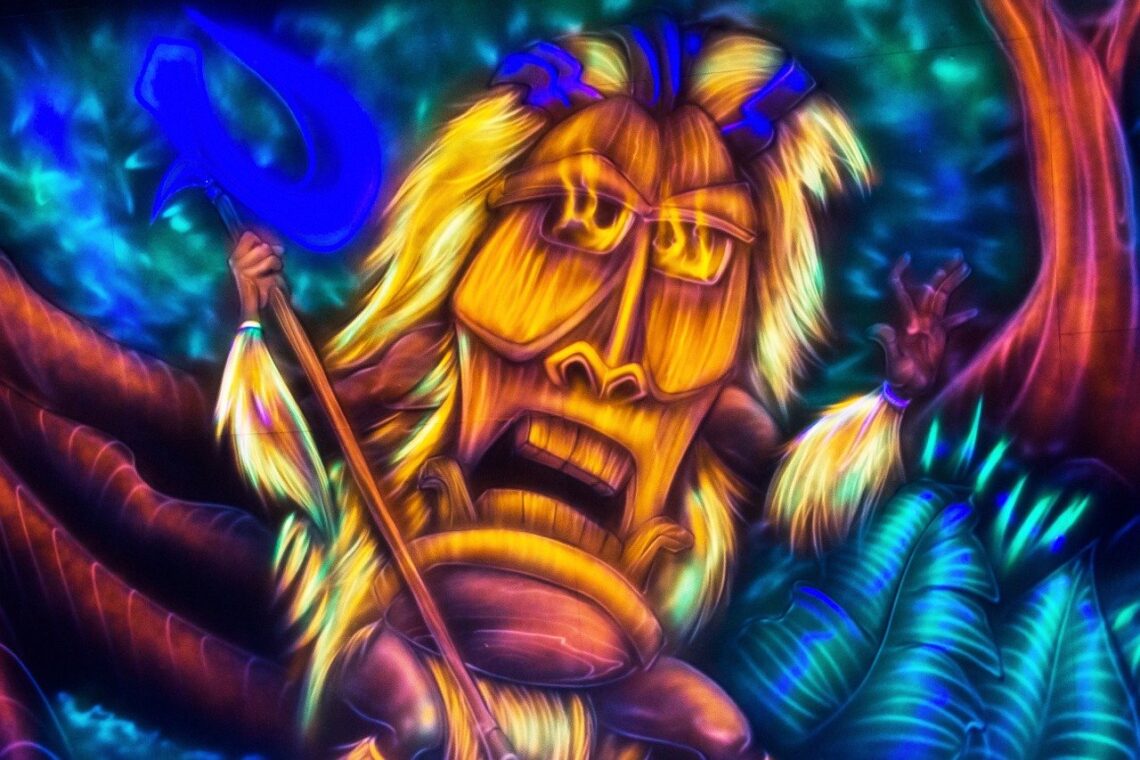
Returning to the Shaman to Move Forward
In a taped lecture by Alan Watts, he discussed a 1957 paper by mythologist Joseph Campbell, “The Symbol Without Meaning” In it, Campbell explained the beginning, development, and dissolution of cosmologies or great worldviews by different cultures.
Alan Watts summarizes the point of the paper,
“In this particular paper, Campbell focused on two phases in man’s religious history which he equates to two styles of culture that predate our own technological style of culture. And these are, respectively, the Hunting cultures and the Agrarian [Farming] Cultures.”
The Shaman and the Hunting Culture
A Shaman, the spiritual leader and medicine man, personifies the individuality of the Hunting culture. He attains his spiritual power and knowledge not by going to schools or academies run by priests or other religious authorities but by going into the forest or jungle and going through his own psychic ordeal. When he completes this inner quest, he emerges as a Man of Knowledge and a Medicine Man with a profound understanding of life and himself.
To highlight the individuality inherent in this culture, Campbell says the hunter often hunts alone and, to survive, must rely on his own resources and knowledge.
The Priests and the Agrarian (Farming) Culture
Campbell contrasts this culture with the far-more complex farming culture with its division of labor and hierarchical social structure.
Typically, this society consists of four classes or castes. They include a priestly or spiritual caste, a temporal ruling or nobility caste, a common or merchant caste, and a labor caste.
Because the agrarian society is more complex and integrated than a hunting culture, individuals must subjugate themselves for the greater good. Therefore, the culture must socially condition people to accept its worldview and roles. For example, the priestly caste informs people of their religious views and discourages individual spiritual experiences as disruptive to the social fabric.
The Mandala
Mandalas are perfect circles divided into four quadrants, signifying society’s four social groups or castes. Campbell says the Mandala symbolizes this society and makes the point that no one had discovered Mandalas before the birth of farming cultures. Overall it shows an integrated community protected by a surrounding circle.
The Modern Age Breaks the Mandala
Eventually, Campbell says, these views broke down in the 15th century with the collapse of the geocentric and its replacement by the heliocentric theory of the universe. The Earth was no longer the center of the universe, upending centuries of Church teachings.
It also broke the Mandala, the symbol of unity in society. Age-old truths were falling, and the modern world couldn’t fill that vacuum. Watts describes it like this,
“Campbell sees this as the breaking up of the Mandala. A breaking up of the communal supported stable picture of the world by means of which men were able to communicate with each other. It was a breaking up that involved disrupting all our means of communication and throwing the culture into fundamental confusion. Because of this, Western people became interested in other attempts to deal with life when the Mandala breaks up.”
The Benefits of the Breakdown: The Forest Dweller and the Shaman
The benefit of this breakdown was that people in the Western developed world began to examine pre-agrarian worldviews such as the hunter culture and the Shaman. They stepped back into an older culture to overcome problems in their culture.
People sought meaning as their worldview collapsed. One idea they discovered was the Hindu notion of the Forest Dweller.
In Hinduism, often after one’s children have grown and begun to have children of their own, a person looks inward in search of a deeper meaning. They want to strip away the views society has bestowed upon them to find out for themselves what is true.
They seek their own experience with reality, and this is where the Forest Dweller becomes like a Shaman. The Forest Dweller leaves society to venture into nature to discover what is true. No longer content to listen to society’s or others’ views, they need their own internal experience to discover who they are.
No Forest Dwellers or Shamans in the Modern Age
Unfortunately, we don’t have this tradition in our modern world. Most people don’t believe there is any deeper meaning to life other than what our materialistic culture can offer. Our worldview does not support a deeper search. People and cultures, who accept this modern view, resemble a fish out of water, gasping for breath.
The problem with the modern world, claims Campbell, is that it codes its knowledge of the past in language and symbols, using them to write detailed histories.
Watts describes it as,
“a form of thinking about life that is basically descriptive—a way of putting into symbols and language the events that go by us. And, as we can put these events into symbols, we develop the most peculiar powers of memory. It becomes easier to recollect and formalize what has happened to us. And, along with this, naturally goes our ability to project the future through thoughts about the future course of events, and this is something primitive people did not do to any great extent.”
Watts describes the problem with this codification of our history through language and symbols.
“The price that is paid for this ability to describe and prefigure what is going to happen to us is that it has a very alarming effect on our emotions. In other words, the civilized man is in a state of chronic fear, worry, and anxiety because he is always confronted not with a single actuality of what has happened but with the innumerable possibilities of what might happen to him.”
In short, we live constantly in our heads and thus have lost the ability to communicate with others and the world around us. We no longer share the same language because the old worldview has broken down. We have lost access to the deeper aspects of ourselves and thus have lost the direct unfiltered experience of the Shaman and the ancient Forest Dwellers. They were able to erase all their social conditioning and experience reality directly, something that is now beyond our abilities. Our thoughts and emotions bury us, and our culture offers little help.
What Our Society Does Offer Us
What help society does offer is through psychiatrists and psychologists. If we are lucky, we may find one who helps us find our way, but most likely, we’ll get one with an authoritarian nature who thinks they already know what an integrated person is, and will attempt to get us to accept their view.
This approach is vastly different from the Shaman or Forest Dweller, who go out on their own to discover who and what they are. Their insights are unique to them, and no one else can provide these answers.
A good therapist can assist us in this quest, but it can’t be one who thinks they already have the answers before meeting us.
Watts says,
“No one person will come in, wave his or her magic wand and make it all better. More and more, each of us is thrown on our own resources, and this seems to be an excellent state of affairs. So we become, in a symbolic sense, back in the forest, like the hunter of old who has no one around to tell him how he ought to think or feel, who, therefore, must make his own exploration to find out for himself.”
He points out that those who take this individual path to discover the truth will find a strange agreement with others who also take it.
We can dig deep enough in ourselves to touch the ground of being common to everything and everyone and thus will have similar revelations. We realize we were not created just to play a role in society but to discover our unique gifts as humans. To do this, we must step back to an earlier time before moving forward in ours.
To learn more about the Intelligence and Magic of the Universe: Click this link: The Magical Universe
Also, you can visit my website and sign up for my email list: https://www.bruce-mcgraw.com/



